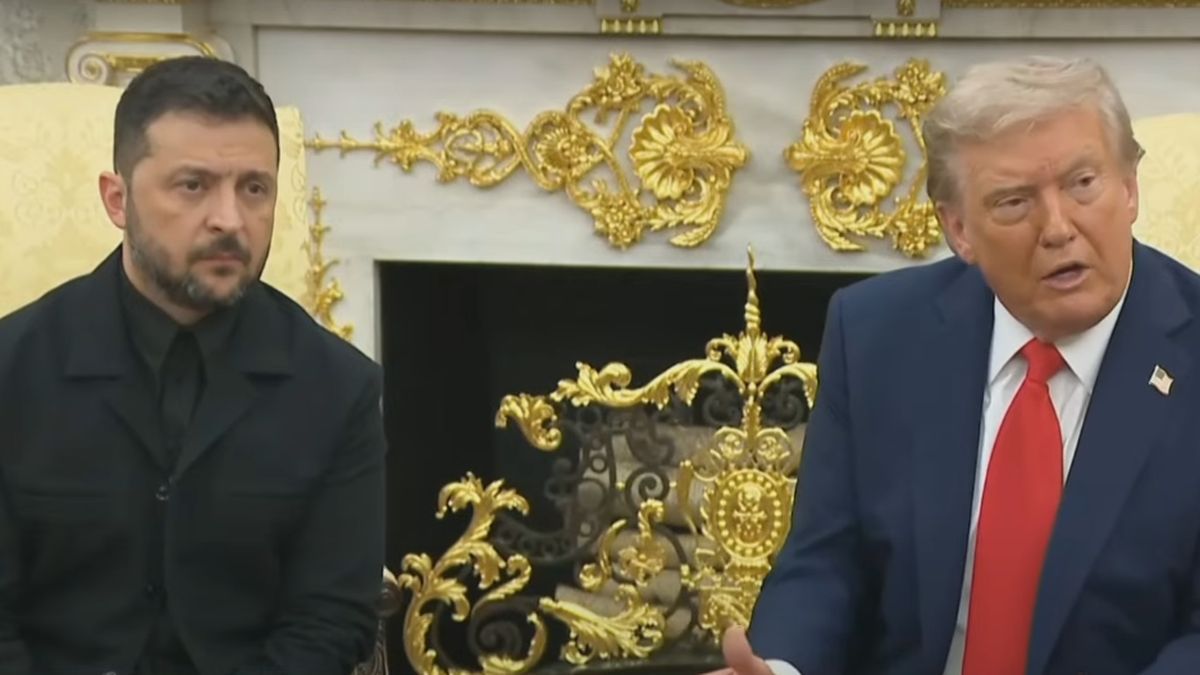Donald Trump has expressed his interest in stopping wars and is seeking, before taking office, the cessation of conflicts to take off with a political victory. An example of his intervention was the ceasefire between Hezbollah and Israel in Lebanon for two months, however, the Israeli offensive in Gaza continues. In addition, the Houthis’ attacks on Israel continue and, in these days, the Bashar Al Assad regime in Syria, which was backed by Russia and Iran, fell. The confrontation between Israel and Iran remains the most important geopolitical dispute.
In the US, Trump has omnipotent powers: the Supreme Court, Congress and the majority of the member states of the Union, which gives him comprehensive institutional power. He has already begun to appoint loyal officials in key organizations, and is preparing for a profound reform in the Armed Forces. Among the names that are part of his cabinet are Marco Rubio as Secretary of State and Scott Bessent as Secretary of the Treasury, both “market friendly.” The president-elect has proposed through the networks, increasing import tariffs, reaching 25% for Mexico and Canada and 10% for China, with the possibility that some products will suffer increases of between 40% and 60% as “anti-virus” measures. dumping”. However, these provisions seem more like a threat than a definitive decision. Tariffs for most countries are likely to be more moderate, projected between 5% and 10%.
As we anticipated from this column, before the elections, Donald Trump’s victory has strengthened the dollar, which has had effects on other currencies, such as the euro, which could be falling to 0.95 dollars per EUR from the current level of 1.05 u $s per EUR. Returning to the Middle East, the increase in oil prices, driven by geopolitical tensions and given and projected fluctuations in the currency market have generated uncertainty. The combination of these variables could affect global trade and international relations, especially between the United States, China and Europe, with consequences for all countries.
ARGENTINA
Inflation in November 2024 is expected not to decrease significantly, remaining just below 3% compared to the previous month. The IMF projects inflation of 45% (between December 2024 and December 2025), while the consensus of private consulting firms, collaborators of Milei, foresees 30%.
Despite the fiscal achievements that the government boasts, this has been a simple product of the “blender” in spending on social benefits, public works, transfers to the provinces, social benefits and other essential items that have fallen significantly, which is causing unprecedented social suffering. The counterpart of the supposed fiscal achievements is the negative impact on the population’s quality of life.
The fiscal surplus is misleading, since it does not include interest capitalized on the Treasury’s peso debt, which distorts the real situation. Even though the IMF allows this “creative accounting,” the primary surplus is expected to be 1.7% of GDP in 2024, while the “creative financial deficit” is projected at 1.7%.
To all this, the maturities of the local debt are compromised. In the next six and a half months, domestic debt maturities will have to be met for a total equivalent to US$61.5 billion, which highlights the fiscal difficulties that could occur in the short term.
Dollars, macroeconomic advances and social cost
The income of dollars is desirable, but functional to the dangerous “eternal carry trade”, an addictive practice that seems to advance without any type of impediments.. The private sector has placed negotiable obligations for US$ 4.7 billion in the last three months, with nominal interest rates of between 5% and 9% per year in dollars.. This has generated a rate differential of 18 points in October alone
The analysis of the relationship between social cost and macroeconomic advances in Argentina is especially relevant, given that the impact on the population is considerably negative. Social benefits fell 24%, public sector salaries fell 9%, and transfers to the provinces were reduced by 8%. In general, adjustment and public spending reduction policies have deeply affected the most vulnerable sectors, while the government has shown limited improvement, which in reality is a low “real fiscal result.” The results of money laundering (around US$ 20,000 million) are emphasized and rightly so, although the accumulation of reserves is minimal and, even if the BCRA dollar purchases of US$ 18,000 million during the Milei administration are added, , gross reserves do not grow by 7.5 billion, net reserves are negative $6.6 billion.
Public Debt and Sustainability
The weight of the internal and external public debt continues to be one of the greatest challenges for Argentina. In September 2024, the total public debt amounted to $460,068 million, which implies an increase of 24.12% in just 9 months and 20 days. The debt in pesos, which is linked to maturities in the coming months, poses a significant challenge for the government. Furthermore, the government faces a scenario where the interest on that debt in pesos is not fully accounted for, which generates a distorted view of the fiscal accounts. This “creative accounting” has allowed present a marketing fiscal surplusbut the real deficit remains high.
One of the most critical aspects of the Argentine economic panorama is the exchange rate policy. The real exchange rate has been under pressure, exacerbated by the appreciation of the dollar and the depreciation of the Brazilian real, generating an unfavorable 2025 context predictability. The probable fall estimated by the consensus of pro-market macroeconomists is around a third of the trade surplus in 2025. The lagging real exchange rate will especially impact SMEs, which will face difficulties competing with cheap imported products from China. This is even more serious given that SMEs represent an essential part of the industrial and social fabric of Argentina, especially in the suburbs.
Institutional excesses
“…I see dark clouds at this stage: I fear for judicial and legislative powers”… “I fear for the institutions. “There is greater concern in the world about results than about the methods to achieve them” said Juan Carlos Maqueda, Judge of the Supreme Court of Justice. (Urgent24, December 11, 2024)
In Washington and Wall Street, there is concern about the use of (DNU) to approve the budget or reallocate items. Respect for institutions and legal security is crucial. And, with a single DNU, a huge number of Laws were repealed. Keeping the 2023 budget in force through an extension would give the Executive Branch flexibility to manipulate the items as desired, but at the same time it would limit the negotiating capacity of the governors, especially in an election year. This centralization of decisions through extraordinary mechanisms reflects an institutional difficulty that could aggravate the governability of the system. “Politics” is worrying, but “democracy” is more worrying.
The joint analysis of all the factors mentioned reveals an economic panorama that, although it presents some fiscal developments, is still marked by a high social cost. The drop in income of the most vulnerable sectors, restrictions on social spending and the challenges of public debt project yellow lights. Despite the alleged financial fiscal surplus, and even if it were real, it shows that the “social cost/macroeconomic benefit” relationship is clearly negative, which raises questions about the sustainability of these policies in the long term.
With an unstoppably rising public debt, a fiscal surplus disguised to cover up deep imbalances and a social cost that disproportionately affects the most vulnerable sectors, Argentina finds itself on the brink of an uncertain and potentially adverse global scenario. The question is not only whether the country will manage to navigate these choppy financial waters without sinking, but also at what political, economic and social cost it might do so. What is undeniable is that economic stability is not guaranteed and that the next twelve months will be a true turning point; the moment when it will be decided whether the policies adopted mark the beginning of a sustained recovery or, on the contrary, deepen a cycle of recurring and heartbreaking crises.
Director of Esperanza Foundation. https://fundacionesperanza.com.ar/ UBA Postgraduate Professor and Master’s Degrees at private universities. Master in International Economic Policy, Doctor in Political Science, author of 6 books
Source: Ambito
I’m a recent graduate of the University of Missouri with a degree in journalism. I started working as a news reporter for 24 Hours World about two years ago, and I’ve been writing articles ever since. My main focus is automotive news, but I’ve also written about politics, lifestyle, and entertainment.




